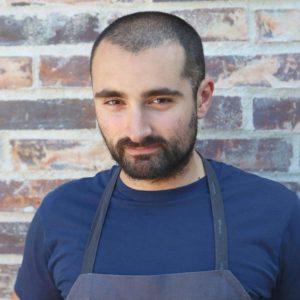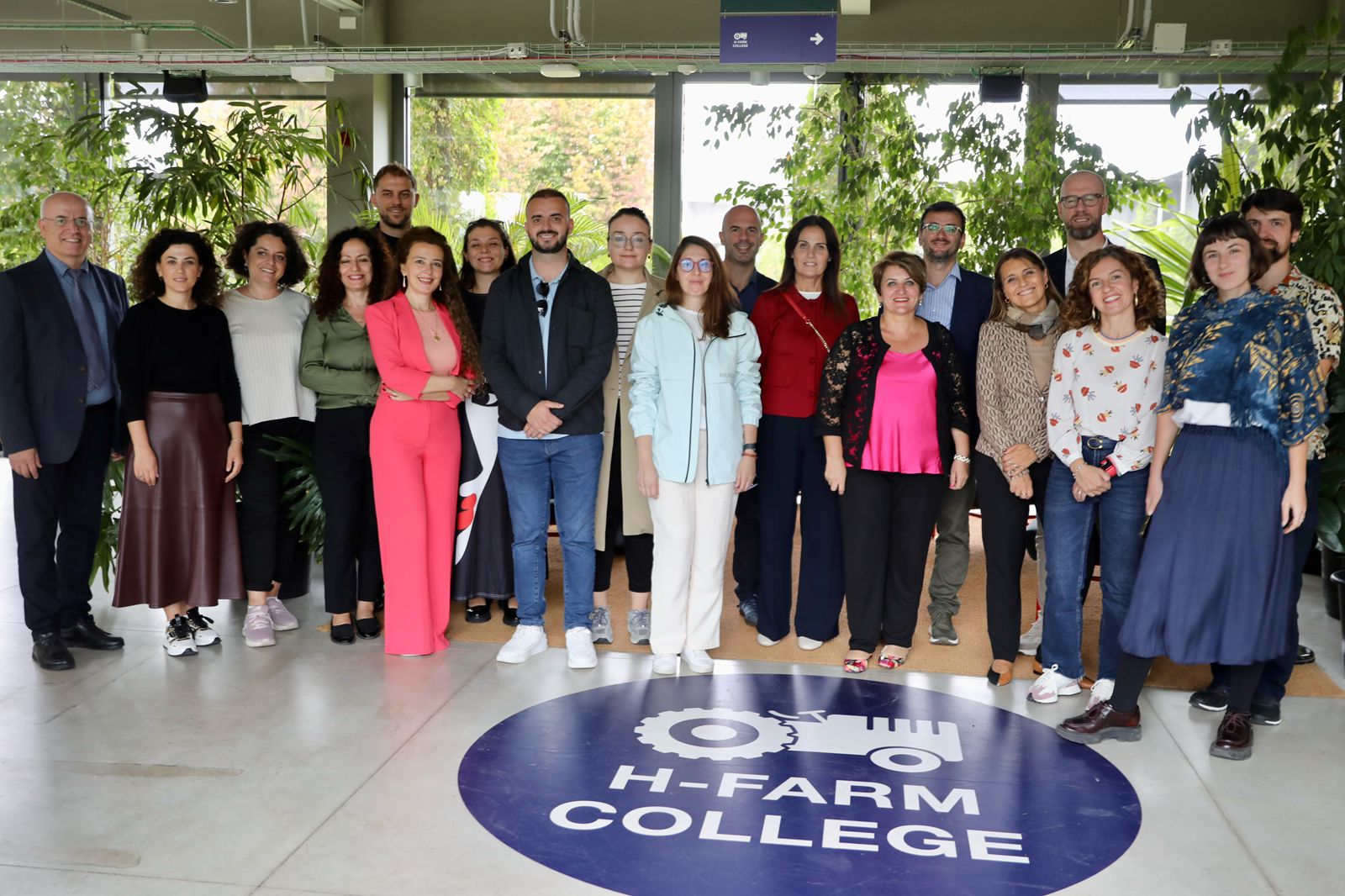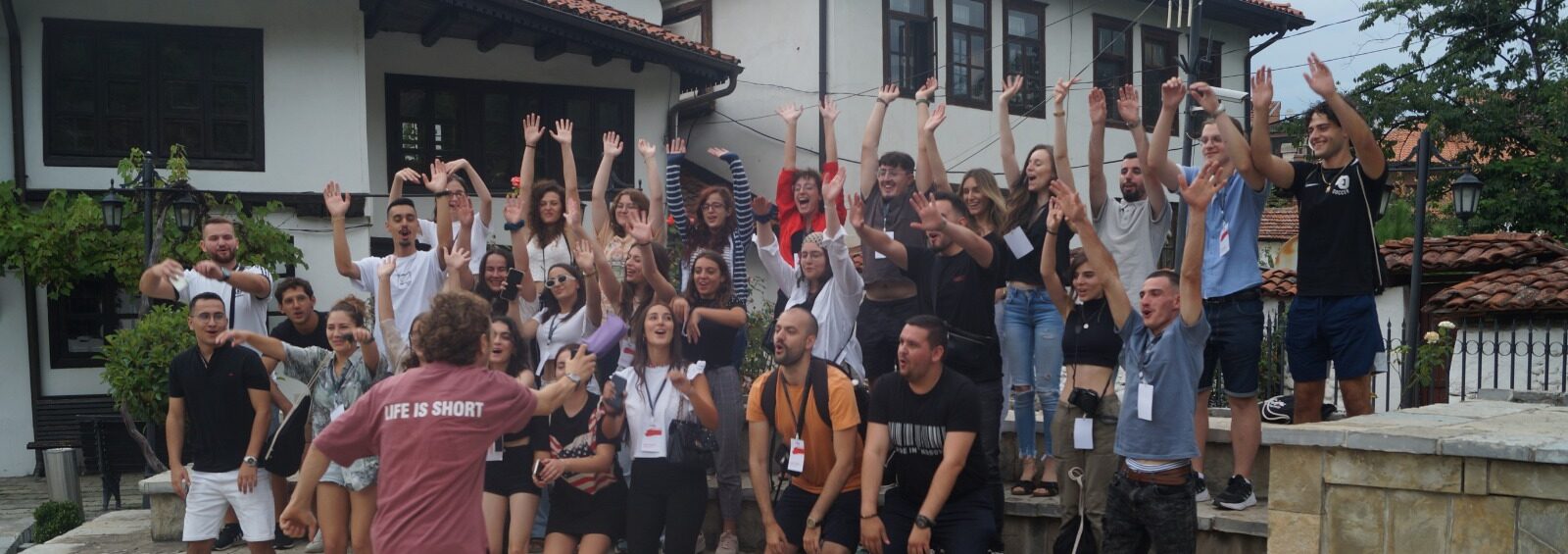Is there a potential to add another item to Prizren’s street food beyond qofte and pleskavica? Perhaps a cornmeal and mushroom filled sarma? That would be a true honoring of tradition. Eating these products by employing them in recipes that a people can understand as their own, is in fact the best way to safeguard the legacy of tradition, considering you can introduce them to the 300,000 tourists who visit Prizren every year. As a chef, I understand that the education required to do that falls upon our shoulders.
By: Fejsal Demiraj
As a chef, I ask myself… What is tradition?
A recipe? A technique? A memory? Family? Or maybe it is the inexplicable urge to cook anything in tavëwith peppers and tomatoes. Formally, tradition is defined as the transmission of customs or beliefs from generation to generation.
Then I’m left to ask, who are the guardians of tradition?
 I can recall the delights of walking through the Pazari i Prizrenit on a warm Wednesday morning with a good friend, our local guide and passionate food lover named Jeton Jagxhiu.
I can recall the delights of walking through the Pazari i Prizrenit on a warm Wednesday morning with a good friend, our local guide and passionate food lover named Jeton Jagxhiu.
The streets were flooded with farmers, homemakers and craftsmen selling everything from preserves to wild fruits, vegetables, herbs, spices, dried flowers, honey, pastries, cheeses, and homewares. Immersed in the city’s landscape you get more than just a good understanding of how rich and deep the cultures within the region of Prizren run.
Later that day I sampled one of the great treasures of  Prizren.Kajmak i ëmbël, made only in the months of May and June. It is the sweetest cream gathered from the rich milk of sheep which feast on thousands of varieties of wild plants in the Sharri Mountains. To make it, the cream is heated, gently collected and stacked one after another into a kind of cake that predates modern desserts.
Prizren.Kajmak i ëmbël, made only in the months of May and June. It is the sweetest cream gathered from the rich milk of sheep which feast on thousands of varieties of wild plants in the Sharri Mountains. To make it, the cream is heated, gently collected and stacked one after another into a kind of cake that predates modern desserts.
This form of alchemy can only be achieved by a chef with the right palate and skill, and the Gushla family have refined this recipe of Kajmak i ëmbël over 5 generations doing the gastronomy of Prizren a great service.
My name is Fejsal Demiraj and I am a first-generation Albanian-American from Yonkers, New York. My grandfather, Halil Hamza, originally from the village of Begaj in Tropoja escaped communism in the 60’s. He brought his family with him to the South Bronx via Italy and raised them freely and without the worry of being persecuted for it; maintaining their traditions both in the household and out.
Raised with a grandmother from the Hasi region in Albania, I was treated to the most thoughtful cooking; one that nourished the soul far more than the stomach. Fli and Qervish misri me pule were pillars of her cooking, requiring hours of her attention and dedication. It is a powerful thing—almost meditative—to focus for so long on something as ostensibly simple as the mere layering of batter with butter and maza.
I follow in her footsteps through the kitchen, and feel privileged to have worked professionally in restaurants across the globe for the past 17 years. Currently I am a sous chef at Restaurant Noma in Copenhagen Denmark and co-founder of RRNO Foundation together with Bledar and Nikolin Kola. RRNO is a non-profit organization with the mission to preserve, develop and promote Albanian gastronomy worldwide.
I am leading the Albanian Gastronomy Expedition, a three-year project undertaken to document the gastronomic traditions of the Albanian natural territories in the Western Balkans. The Albanian Gastronomy Expedition is RRNO Foundation’s first contribution to the millions of members of Albanian Diaspora worldwide. This first phase is a two month scouting to create a roadmap for RRNO’s upcoming field research into these gastronomic traditions. Next year we will begin the second phase of the expedition. Our team is comprised of Nikolin Kola, co-founder of RRNO, Matthias Haupt, a 20-year veteran of food and landscape photography and myself.

Our expedition has taken us all over Kosova, where we spent some time in Prizren, a city with a long history of cultural exchange spanning centuries. Prizren has served as a trading hub, living on through many empires as a true melting pot.
While out for sightseeing, just outside of Restelice, we were stopped by Jusuf, a 4th generation shepherd and Sharri Cheesemaker. He took the time to share the ins and outs of his craft that he undertakes without refrigeration, following techniques that have endured as a means of survival for centuries. In his stan we tasted a cheese which embodied the land and very traditions of the region.
The following day we visited the stone mill Adem Aga Gjon, owned and operated by Maliq Germizaj. It’s a 400-year-old corn mill powered by the Lumbardhi River in the center of Prizren.

It is the only mill of it’s kind in Prizren, yet his corn is not purchased by local restaurants… a fact that leads me to ask: Why? This alone gives Prizren a competitive advantage in Kosova’s restaurant world. If restaurants will not cook with his product, there must be another way to ensure its survival. Having cooked with it myself, I can attest that it would be hard to find a cornmeal of higher quality.
Is there a potential to add another item to Prizren’s street food beyond qofte and pleskavica? Perhaps a cornmeal and mushroom filled sarma? That would be a true honoring of tradition. Eating these products by employing them in recipes that a people can understand as their own, is in fact the best way to safeguard the legacy of tradition, considering you can introduce them to the 300,000 tourists who visit Prizren every year. As a chef, I understand that the education required to do that falls upon our shoulders.
Contrary to popular belief, Kosova has so much more to offer than just peppers and tomatoes. You just need to take the time to seek out those foods for what they are, because where they are is already right under your nose.
Follow our journey at @albanian_expedition to just a few of our highlights.
Author: Fejsal DEMIRAJ – Sous chef at Restaurant Noma in Copenhagen Denmark, and co-founder of RRNO Foundation. RRNO is a non-profit organization with the mission to preserve, develop and promote Albanian gastronomy worldwide.
First published at Investo në Prizren.




